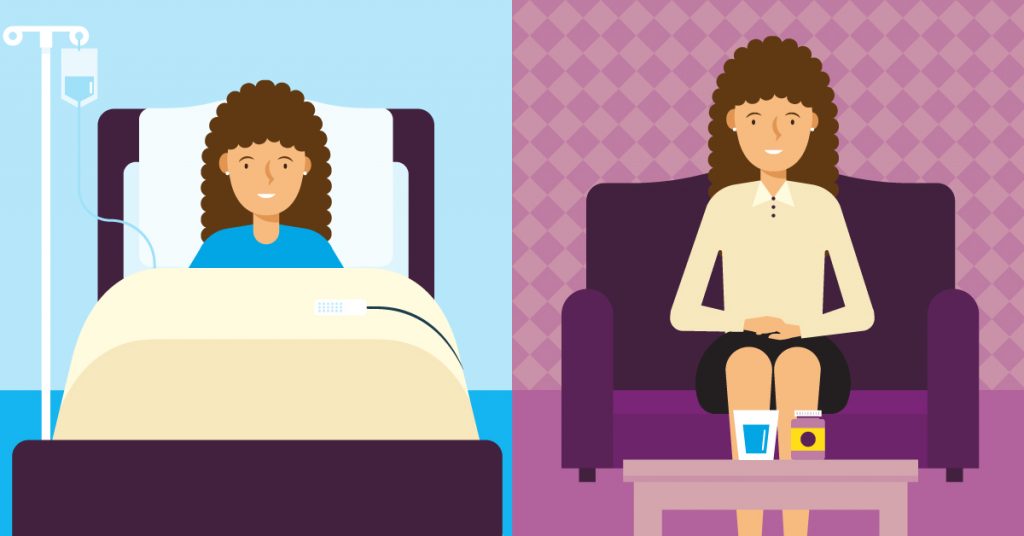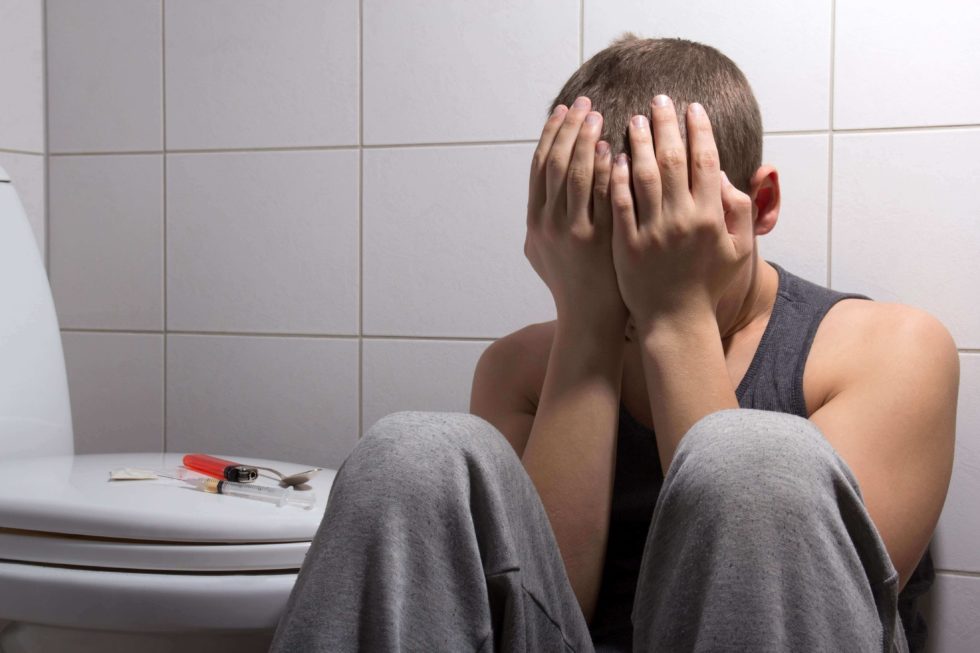Inpatient vs. outpatient rehab

Inpatient patients are treated while inside a hospital, while outpatient patients cannot stay inside. Inpatients and Outpatients refer to therapeutic procedures as well as diagnostic procedures. Inpatients” then means that the patient must go back home at a rehab center for therapy and detox, primarily because of the need for surveillance. “Outpatient” therapy – a similar type of therapy, albeit without a structured inpatient program, is available.
Choosing to go in for rehab is important in the process of sobriety. Each of these types has unique features.
Inpatient and outpatient treatment
Treatment for addiction is divided into either an inpatient or an outpatient program. While both are focused upon rehabilitation, there are different forms of treatment which offer different features. Inpatient rehab is a long-term residential program that aims to treat addiction. Outpatient rehab is part of the program, allowing recovering users to continue to go home and study during the day. It is important for both people who suffer from substance abuse disorders to be aware of these differences before choosing treatment. Exploring the alternatives before making any decisions can help to keep someone in optimum health and to maintain the highest possible quality of their lives.
Daily life during inpatient rehabilitation
Using Inpatient Treatment patients can concentrate completely on their daily activities and not be distracted by the everyday. The average residential treatment day is planned with meticulous care if needed. Psychologists, counselling psychologists, and psychiatrists are able and willing to work closely together in individual therapy sessions or in groups for inpatient treatment. Inpatient programs generally take up to 28 days or six months. Inpatients undergo an invasive medical detox process. During drug withdrawal, doctors and pharmacologists monitor the patient’s vitals. During a detox period drugs can become difficult to overcome, which can often lead to relapse.
Both inpatient and outpatient substance abuse treatment have unique benefits and drawbacks.
Generally, people who need treatment are treated either at a hospital or out of a hospital. Although these three levels offer similar treatment for addictions – such as individual and group therapy and medication management — they are different clinical hours and supervision in their respective capacities. Choosing to participate in rehabilitation outside of the hospital can be a major choice. It’s critical to learn about these different services to determine the best option, Inpatient care versus Outpatient care.
Outpatient detox programs
Symptom-ridden drug withdrawal may require an outpatient detoxification approach as an alternative to residential treatment. Outpatient detox is safe effective and requires fewer hours than inpatient detox; the median outpatient detox is 6.5 days. Patients must be examined in the hospital or other medical facility during the ambulatory detoxification. Some physicians may prescribe medication on-site as well as treating patients’ anxiety or tremor.
Outpatient rehabilitation and treatment
Inpatient rehabs have less restrictions than inpatient programs. Outpatient rehab typically involves 10-12 hours each week of visits at the local rehab center. These sessions are geared towards educating the public on addiction and adversity in overcoming their problems. Outpatient drug treatment is a very good choice for those with moderate addictions. Outpatient drug treatment can take three to six months or even longer.
Family Support And Contact In Inpatient Rehab
Successful Inpatient Hospitals understand the importance of family involvement in the recovery process. Family members can contact Family Residential Care for psychological assistance and encouragement. The policy for communicating in the care of an inpatient is unique to the different residents of the facility. Rehabilitation facilities often offer counseling to family members of the patients who are in therapy.
Inpatient vs. Outpatient Cost Comparison
Inpatient treatment costs are important in deciding which is the best choice. Generally, inpatient treatment is expensive because of higher levels of service than outpatient therapy. The cost of rehabilitation inpatients varies from $2000 for basic services to $40K per month for comprehensive services for a person without insurance for treatment. Outpatient rehabilitation generally costs less, with most programs starting around $1,000. Inpatients and outpatients are billed in a number of different ways depending on the insurance company and their treatment costs and benefits.
Which one is best for you?
Everyone has unique requirements, and not everyone reacts in similar ways. You want to select the program that gives you individual attention. Inpatient care is the best option for people whose current home environment does not encourage their rehabilitation. You should have a good chance of getting into an outpatient treatment program if you are unsure about how you want to be sobrietized at home. This program allows for patients flexibility in scheduling and participants in the program can live independently, work and study, while also benefitting from rehab.
How long does addiction rehab last?
Accordingly, treatment outcomes improve with long-term care. Treatment must last approximately 90 days to increase sobriety chances. Three months treatment duration is required for patients to enroll in an inpatient program. Structured outpatient addiction treatment may be an important component of this prescribed period of therapy, unless they are not the primary therapeutic outlets of the program. In many instances, initial treatment may be required more quickly before the patient’s transition into aftercare.
The cost difference between inpatient and outpatient programs
Inpatient treatment is generally cheaper than outpatient treatment, because of the fact that it includes lodging and board during its entire program. Outpatient care lets people stay home and reduces their costs. The total cost of the intensive outpatient programs is dependent on duration and frequency of the treatment sessions. It is more affordable for patients who choose longer programmes. Typical outpatient programs that have the commitment of 1 or 2 days in the week for 1 hour each may be cheaper.
In comparison to inpatient programs, outpatient therapy allows participants to stay at home while completing treatment. Recovering individuals can go into group therapy and individual therapists weekly, and can also see psychiatrists yearly to discuss their medications for managing withdrawal and any current mental health problems. Treatment is similar to treatment in inpatient centers, but is a little more intensive. Inpatient rehab may use one type of therapy.

The advantages of outpatient care
The outpatient program offers countless benefits. First, people can rest at home with friends and family. It’s possible that people stay at home, outside their garden and enjoy whatever activities they want in any place and choose an appropriate spot. Depending upon their schedule, they are able to prepare their own foods and cook their own meals. Secondly, outpatient treatment is generally cheaper than comparable inpatient services. Even patients that have a healthy healthcare system can still save a lot with outpatient services rather than on a hospital visit.
The Advantages of Inpatient Care
Inpatient therapy allows the person to take time out of his/her daily obligations and concentrate on his/her recovery. Inpatient treatment is a key component of relapse prevention if your recovery is based on self-care alone. Inpatient rehabilitation programs allow for a 24-hour care service with highly experienced professionals. A good rehabilitation center provides specialized training in the management and supervision of difficult situations.






